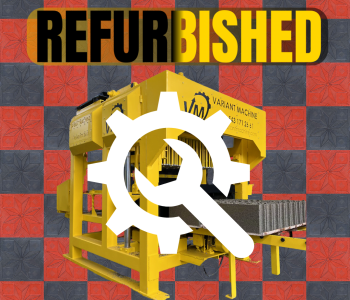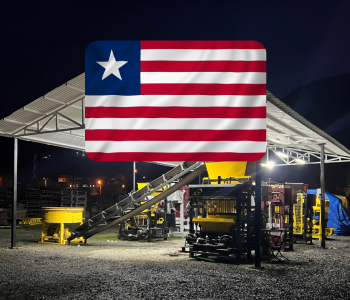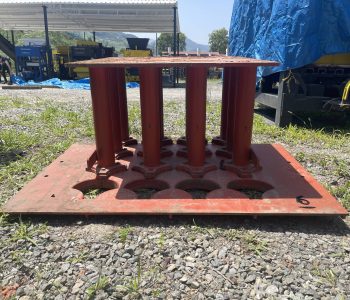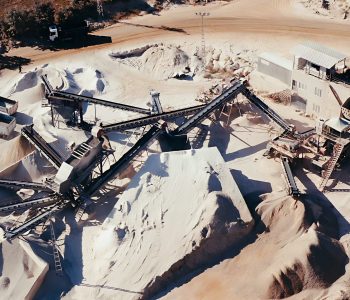Concrete Blocks in Kenya
Introduction
The construction sector in Kenya is a vital part of the nation’s economy, driving infrastructure development, residential growth, and urban expansion. Among the various construction materials and technologies used, concrete blocks and pavers have become increasingly prominent. This article explores the use of concrete blocks and pavers in Kenya’s construction industry, as well as the machinery involved in their production.
The Role of Concrete Blocks and Pavers
Concrete Blocks
Concrete blocks are a staple in Kenya’s construction sector due to their durability, versatility, and cost-effectiveness. They are used in a variety of applications, including residential buildings, commercial structures, and infrastructure projects. The popularity of concrete blocks is attributed to several factors:
– Cost Efficiency: Concrete blocks are relatively inexpensive compared to other building materials. Their production process is straightforward, and the raw materials—cement, sand, and aggregates—are widely available.
– Durability: Concrete blocks are known for their strength and longevity. They offer excellent resistance to environmental elements such as moisture and pests, making them ideal for Kenya’s diverse climatic conditions.
– Insulation: Concrete blocks provide good thermal and sound insulation, contributing to more comfortable living and working environments.
Pavers
Pavers are another crucial component in Kenya’s construction landscape. They are used for various applications, including driveways, walkways, and public spaces. The benefits of using pavers include:
– Aesthetic Appeal: Pavers come in a range of shapes, sizes, and colors, allowing for creative and visually appealing designs.
– Versatility: They are suitable for different surface types and can be easily replaced or repaired if damaged.
– Maintenance: Paver surfaces are relatively low maintenance compared to other materials. They allow for good drainage and are resistant to cracking and shifting.
Production Machinery for Concrete Blocks and Pavers
The production of concrete blocks and pavers in Kenya involves several types of machinery, each crucial for ensuring the quality and efficiency of the manufacturing process.
- Concrete Block Making Machines
Concrete block making machines are essential for producing high-quality blocks. These machines can vary in complexity, from manual to fully automated systems. Key types include:
– Manual Machines: Ideal for small-scale production, these machines require manual labor to operate. They are cost-effective but less efficient and consistent compared to automated systems.
– Semi-Automatic Machines: These machines offer a balance between manual and fully automated systems. They require some manual intervention but streamline the production process, increasing efficiency and consistency.
– Fully Automatic Machines: These are high-capacity machines that automate most aspects of block production, from mixing to molding to curing. They are suitable for large-scale operations and ensure high precision and uniformity in block quality.
- Paver Making Machines
Paver making machines are designed to produce interlocking pavers and other types of paving stones. They come in various configurations:
– Manual Paver Machines: These machines are suited for smaller operations and involve manual loading and unloading of molds.
– Hydraulic Press Machines: Utilizing hydraulic pressure, these machines produce high-density pavers with excellent strength and durability.
– Vibrating Machines: Vibrating paver machines use vibration to ensure uniform compaction and quality of the pavers. They are efficient for producing high volumes with consistent quality.
- Ancillary Equipment
In addition to the primary block and paver making machines, several ancillary machines play a role in the production process:
– Concrete Mixers: Essential for preparing the concrete mix, these mixers ensure that the components are thoroughly combined for optimal strength and consistency.
– Curing Chambers: Proper curing is crucial for the strength and durability of concrete products. Curing chambers control the temperature and humidity to ensure that the blocks and pavers achieve their desired properties.
– Cutting Machines: For precise cutting of blocks and pavers, cutting machines are used to achieve specific dimensions and finishes.
Challenges and Opportunities
The construction sector in Kenya faces several challenges, including fluctuating raw material costs, energy constraints, and the need for skilled labor. However, there are significant opportunities for growth and innovation:
– Technological Advancements: Embracing modern machinery and production techniques can improve efficiency and product quality.
– Sustainability: Incorporating sustainable practices, such as using eco-friendly materials and energy-efficient machinery, can address environmental concerns and enhance the industry’s long-term viability.
– Training and Development: Investing in training programs for operators and technicians can improve the overall quality and efficiency of production.
Conclusion
Concrete blocks and pavers play a crucial role in Kenya’s construction sector, offering durability, cost-effectiveness, and versatility. The machinery used for their production ranges from manual to highly automated systems, each with its own advantages and applications. Despite facing challenges, the industry has significant opportunities for growth through technological advancements and sustainable practices. As Kenya continues to develop and expand, the role of concrete blocks, pavers, and the associated machinery will remain central to its construction landscape.



